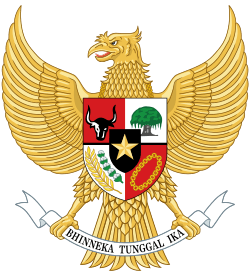Roem–van Roijen Agreement
The Roem – van Roijen Agreement was an agreement made between Indonesia and the Netherlands on 7 May 1949. The name being derived between the two principal negotiators at the meeting; Mohammad Roem and Jan Herman van Roijen. The purpose of the meeting was to iron out outstanding issues prior to Indonesian independence which was to be granted at the Round Table Conference at The Hague later that same year.
The primary concerns that were agreed upon were:
- Indonesian armed forces to cease all guerilla activities.
- The Indonesian Republican government's consent to attend the Round Table Conference.
- Restoration of the Indonesian Republican government in Yogyakarta.
- Dutch troops to cease all military operations and free all prisoners of war.
On June 22 another meeting took place regarding future Dutch-Indonesian relationships. The principles that were agreed upon were:
- Complete and unconditional sovereignty to be transferred to Indonesia in accordance with the Renville Agreement of 1948.
- A union to be established by the Netherlands and Indonesia on the basis of voluntary and equal partnership with equal rights.
- An agreement with regard to the transfer of the rights, powers and obligations from the Dutch East Indies to Indonesia.
On July 6, Sukarno and Mohammad Hatta returned from exile to the Indonesian Republican capital of Jogjakarta. On July 13, the Hatta cabinet confirmed the Roem – van Roijen Agreement. On August 3, a Dutch-Indonesian ceasefire was agreed upon and came into place on Java (Aug.11) and Sumatra (Aug.15). The Round Table Conference (Aug.23-Oct.31) reached agreement on all issues in the agenda, with the exception of the West New Guinea question.
References
Australia & Indonesia's Independence: The Transfer Of Sovereignty: Documents 1949


